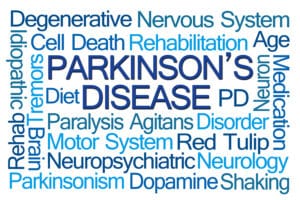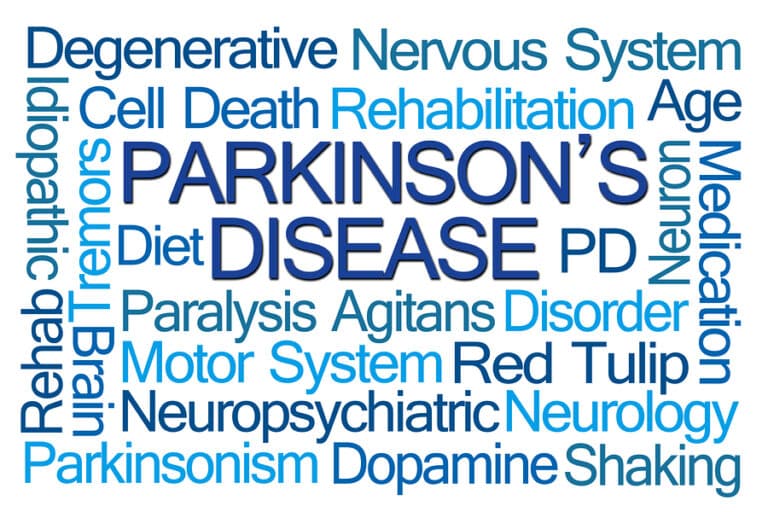
Parkinson’s disease is a degenerative disorder that affects the central nervous system, including the motor system. Symptoms usually arrive slowly and ramp up, and can include shaking, difficulty moving and walking. Later symptoms can include cognitive issues, among other concerns. Working with palliative care providers can offer your senior other ways of managing her experience with Parkinson’s disease.
Balance and Mobility Issues
Parkinson’s affects so much of your senior’s movements, and her balance and mobility may deteriorate very quickly. This raises her risk of falling and of seriously injuring herself. Palliative care can help to arrange for physical therapy to assist your family member, and they can be there to help your senior to move safely.
Trouble Swallowing and Drooling
Another common problem with Parkinson’s disease are difficulty with swallowing and controlling drool. Palliative care teams can work with your senior’s doctors to help find medications and other therapies that can help with both of these issues. For instance, incorporating speech therapists or occupational therapy can help. These issues are serious concerns because they can contribute to aspiration pneumonia.
Difficulty Communicating
Communicating, both verbally and through body language, can be a huge problem for people with Parkinson’s disease. Written communication may be impossible, especially in the later stages. But palliative care professionals are well-versed in helping people who have communication difficulties to have their voices heard. This can be a huge help to your senior’s mental health.
Emotional and Psychological Issues
Parkinson’s disease has a huge impact on your senior’s mental health. She may experience anxiety about her symptoms, particularly if she has to go out in public and worries about what other people are thinking. There are also a great many losses that she experiences with Parkinson’s, which can lead to depression and other issues. Palliative care providers can help her to get the mental health assistance that she needs.
Increase of Symptoms Due to Reduced Response to Medications
Medications for Parkinson’s disease tend to lose their effectiveness as your senior continues to take them. This means that symptoms that were under control because of the medication may return. This can be difficult both physically and emotionally. Palliative care teams can help by working with your senior’s doctor to change her medications to find solutions that help even a little.
Palliative care can help to address symptoms and also ensure that your senior is involved with managing her care as much as she can be.
If you or an aging loved-one is considering Palliative Care in north Texas, please contact the caring staff at Arcy Supportive Care today. 469-348-0670.
My name is Jimmie Stapleton. I am the founder and CEO of Arcy Healthcare. Arcy Healthcare includes Arcy Hospice, Arcy Supportive Care, Arcy Home Health and Arcy at Home.
Arcy Hospice was opened in 2007 to provide care and support for individuals and families facing a life limiting illness. It was established after my wife Ellen, who had been diagnosed with breast cancer, had completed her chemo and radiation therapies. At that time, things were looking positive, and we wanted to do something for our community that had been so supportive of our family during her treatments. Unfortunately, the cancer returned a few years later, and she subsequently passed away under our care in 2010.
In the years that followed, I began to see the need to provide the same level of excellent care to patients across the continuum of care. Therefore, we have added a home health division (Arcy Home Health), a palliative care division (Arcy Supportive Care), and a home care division, (Arcy at Home). With the addition of these divisions, we can meet most of the post-acute care needs for you and your family in your home.
I started Arcy Hospice with my wife as my motivation to provide exceptional care and support in the patient’s home, where they are surrounded by family and where they feel most comfortable. I’m proud to say that our staff provides some of the best in home care in the Dallas-Ft. Worth area.
Please let us know if we can enrich the quality of life for you or a loved one.
Sincerely,
Jimmie Stapleton – Founder and CEO
Arcy Healthcare
- Arcy Healthcare Expands Presence in Home Care Market - June 6, 2025
- Understanding the Connection Between Sleep and Balance - May 21, 2025
- Arcy Proudly Supports the TWU Meyers Stroke Center - May 19, 2025




